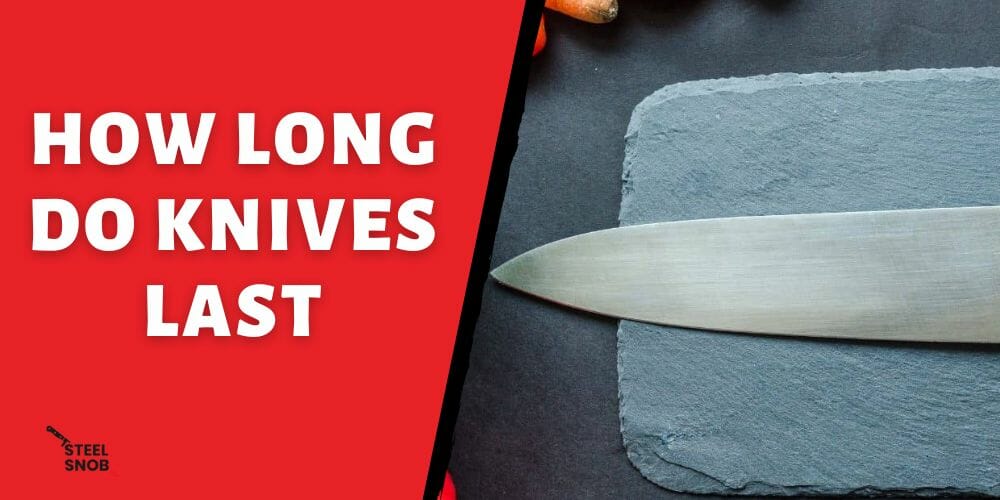A dull knife is a dangerous knife. Not only will it be more difficult to cut with, but it can also easily slip and cause injury. That’s why it’s essential to know how to sharpen your knives and keep them in good condition.
In this blog post, we’ll discuss how long knives last and how you can get the most out of yours. We will also explore the different factors that affect how long knives last and provide some tips on how to make them last longer.
How Long Do Knives Last?
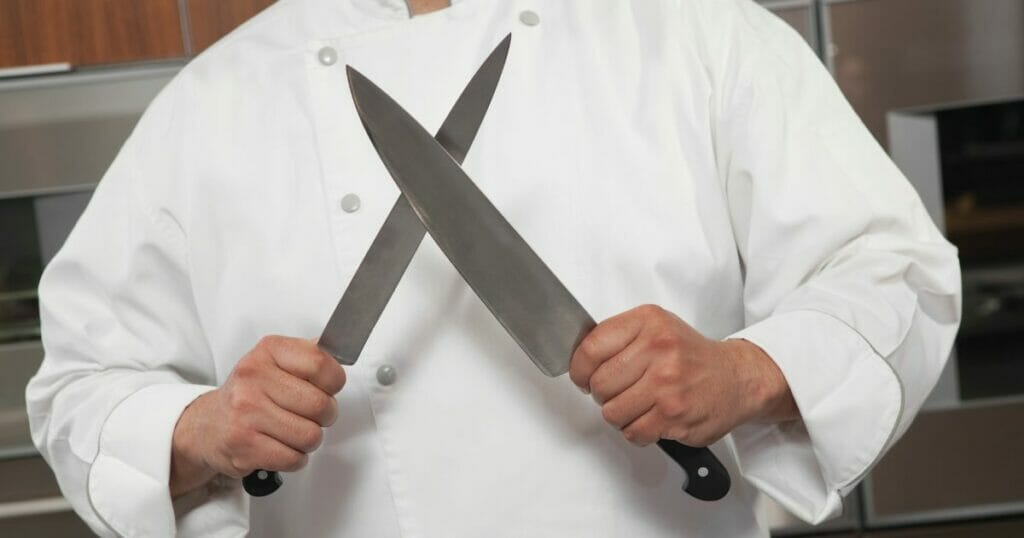
The lifespan of a knife depends on several factors, including the type of knife, how it is used, and how it is cared for. For instance, a professional chef knife used daily will not last as long as a paring knife that is only used occasionally.
Similarly, a hunting knife constantly exposed to the elements will not last as long as a kitchen knife that is always stored in a drawer. However, most quality knives will last for several years with proper care.
How to Make Your Knives Last Longer
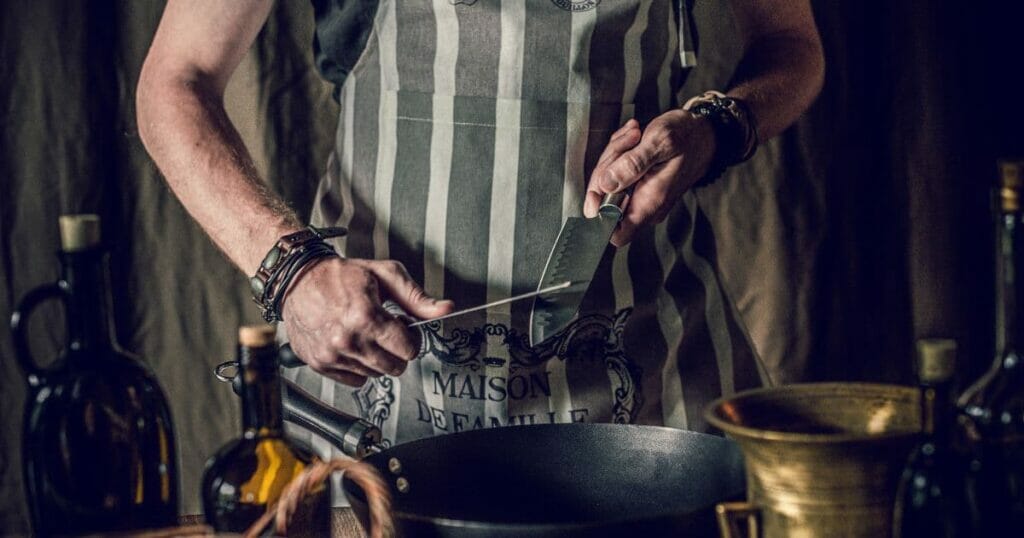
There are a few things you can do to extend the life of your knives. These include:
Store Them in a Dry Place
This is especially important for knives with natural wood handles. If the handle gets wet, it can start to crack and break down.
To prevent this, store your knives in a drawer or cabinet where they will not be exposed to moisture. You can also invest in a knife block or magnetic strip to keep them organized and protected.
Wash Them by Hand
Dishwashers are harsh on knives and can dull their blade. To prevent this, wash your knives by hand with warm water and mild soap.
Be careful when you’re washing them, as even a dull knife can cause injury if you’re not careful. Dry them immediately after washing to prevent rusting.
Sharpen Them Regularly
A dull knife is a dangerous knife. Not only is it more difficult to cut with, but it can also easily slip and cause injury. That’s why it’s important to sharpen your knives regularly.
You can use a honing rod or sharpening stone to keep the blade in good condition. If you don’t know how to sharpen a knife, there are plenty of tutorials online that can show you how.
Use a Cutting Board
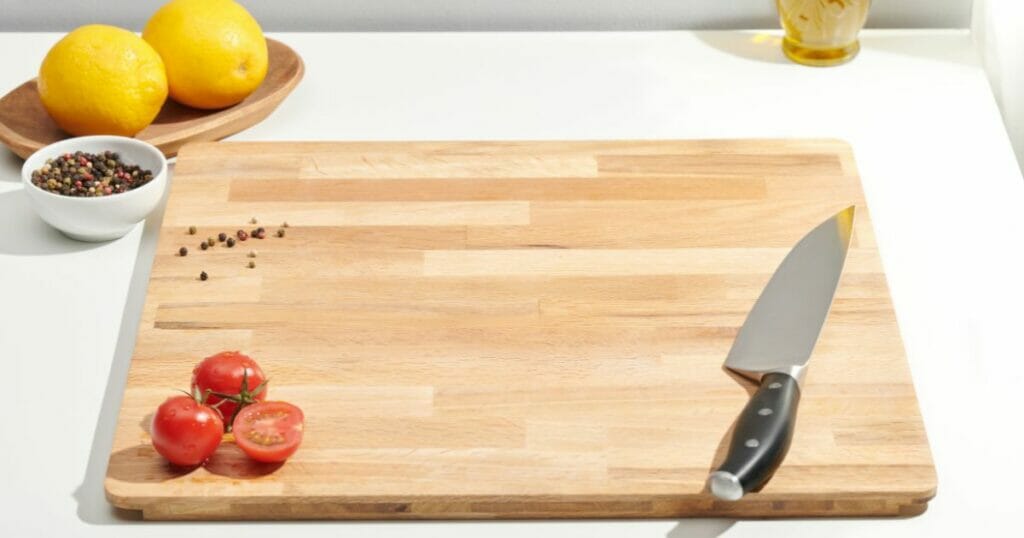
A cutting board will protect your knives from becoming damaged. It will also make chopping and slicing easier, as the board will provide a stable surface.
When choosing a cutting board, look for one that is made from hardwood or bamboo. Avoid boards that are made from soft materials like plastic, as they will dull your knives more quickly.
Use Knife Blade Oil on Your Knife
As we all know, water and oil don’t mix. The same is true for carrying knives and water.
If you want to protect your serrated knife from rusting, you should use a knife blade oil or a coat of mineral oil on it. This will create a barrier between the softer metal and the moisture in the air.
When to Replace Your Kitchen Knives
Even with proper care, knives will eventually need to be replaced. The best way to tell if your cheap knives are ready to be replaced is to pay attention to how they feel when you use them.
All the same, here are some indicators that you need to replace your high-quality kitchen knife sets:
- A dull blade: A dull blade is a dangerous blade. If your knife doesn’t seem to be as sharp as it used to be, it’s time to replace it.
- Damaged handle: If the handle of your knife is cracked or damaged, it needs to be replaced. A damaged handle can cause the blade to come loose, which is very dangerous.
- Rust: Rust is a sign that your knife is not being properly cared for. If you see rust on the blade, it’s time to get a new knife.
- A bent tip: If the tip of your knife is bent, it’s time for a new one. A bent tip can make it difficult to slice through food and can also be dangerous.
- Loose rivets: If the rivets that hold your good-quality chef’s knife together are loose, it’s time to get a new knife. Loose rivets can cause the blade to come loose, which is very dangerous.
How Often Should You Replace Your Knives?
Generally, you should replace your kitchen knives every two to three years. Of course, this will vary depending on how often you use them and how well you care for them.
If you take good care of your knives and sharpen them regularly, they will last longer. Similarly, if you use your knives frequently or for tough tasks, you will need to replace them more often.
No matter how well you care for your knives, though, they will eventually need to be replaced. Pay attention to how they feel and look, and replace them when necessary.
Can Knives Last Forever?
Yes, a worthy knife can last forever. With proper care, your knives can last for many years. However, they will eventually need to be replaced. Pay attention to how your knives feel and look, and replace them when necessary.
Remember, a dull knife is a dangerous knife. Always keep your knives sharpened and in good condition to prevent injury.
What Are the Different Types of Knives?
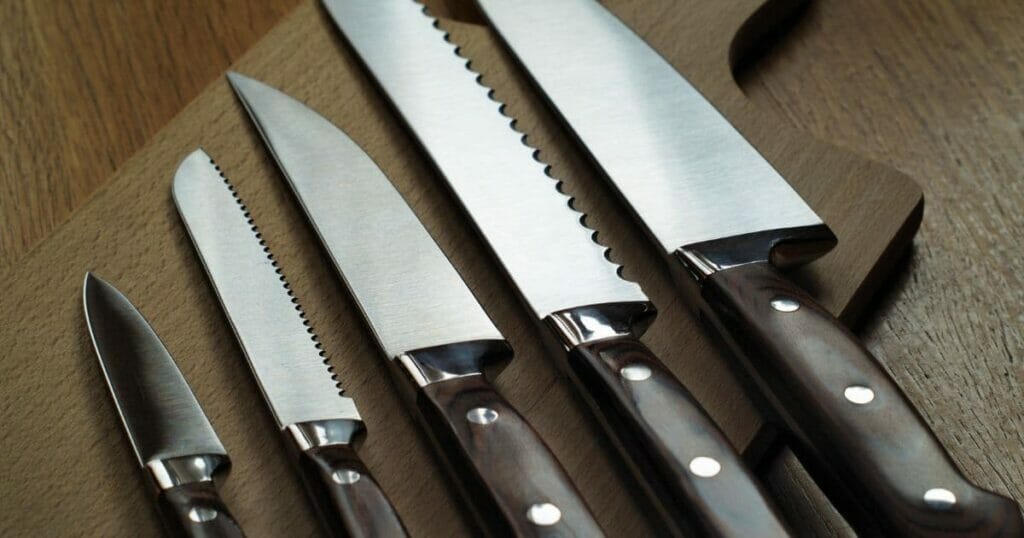
There are many different types of knives, each designed for a specific purpose. Here are some of the most common types of knives:
- Paring knife: A paring knife is a small knife used for peeling and chopping fruit and vegetables. It has a short, sharp blade that is easy to control.
- Chef’s knife: A chef’s knife is a large knife used for chopping and slicing. It has a long, sharp blade that can handle demanding tasks.
- Bread knife: A bread knife has a serrated blade designed for cutting bread. The blade is sharp enough to cut through the crust but not so sharp that it will damage the soft inside of the bread.
- Butcher knife: A butcher knife is a large, sharp knife that is used for cutting meat.
- Cleaver: A cleaver is a large, sharp knife used for chopping and slicing.
Which Knife Should I Use?
The type of knife you use will depend on the task you are performing. For example, if you are cutting bread, you will need to use a bread knife. If you are cutting meat, you will need to use a butcher knife.
Always use the appropriate knife for the task at hand to ensure safety and efficiency. If you’re not sure which individual knives to use, ask a professional.
How Should I Store My Knives?
Knives should be stored in a safe, dry place. A knife block is a good option, as it keeps your knives organized and protects the blades.
You can also store your quality knives in a drawer, but be sure to use a knife guard to protect the blades. If you don’t have a knife block or drawer, you can store your knives in a kitchen cabinet or look into other knife storage solutions. Just be sure to keep them out of reach of children.
How Should I Clean My Knives?
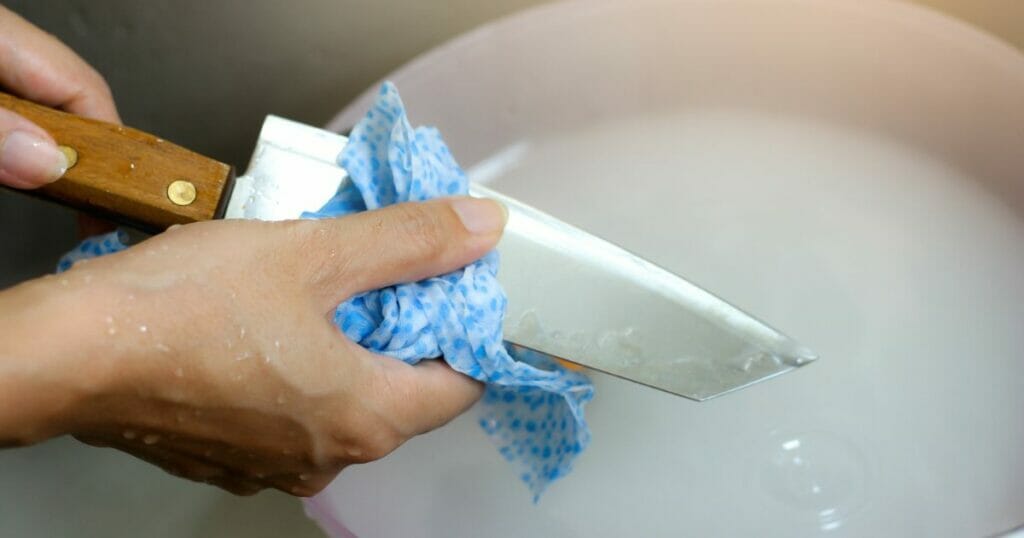
Knives should be cleaned after each use. Wash the blades in warm, soapy water and dry them with a clean towel. Be sure to wash the handles as well.
If your knives are very dirty, you can soak them in a mixture of warm water and dish soap for 30 minutes. Then, wash and dry them as usual.
What Is the Best Material for Knives?
The best material for professional knives is stainless steel. Stainless steel is durable and resistant to rust and corrosion. A stainless steel knife is also easy to clean and sterilize.
If you are looking for a more affordable option, carbon steel knives are a good choice. Carbon steel is less resistant to rust and corrosion than stainless steel, but it is still a good option for knives.
Whatever material you choose, be sure to take care of your high-quality knives to ensure they last as long as possible.
Conclusion
In this blog post, we’ve discussed how long knives last and how you can make them last longer. We’ve also explored the different factors that affect how long knives last and provided some tips on how to make them last longer.
With proper care, your knives can last for many years. By following the tips above, you can help to ensure that your knives are always in good condition.

